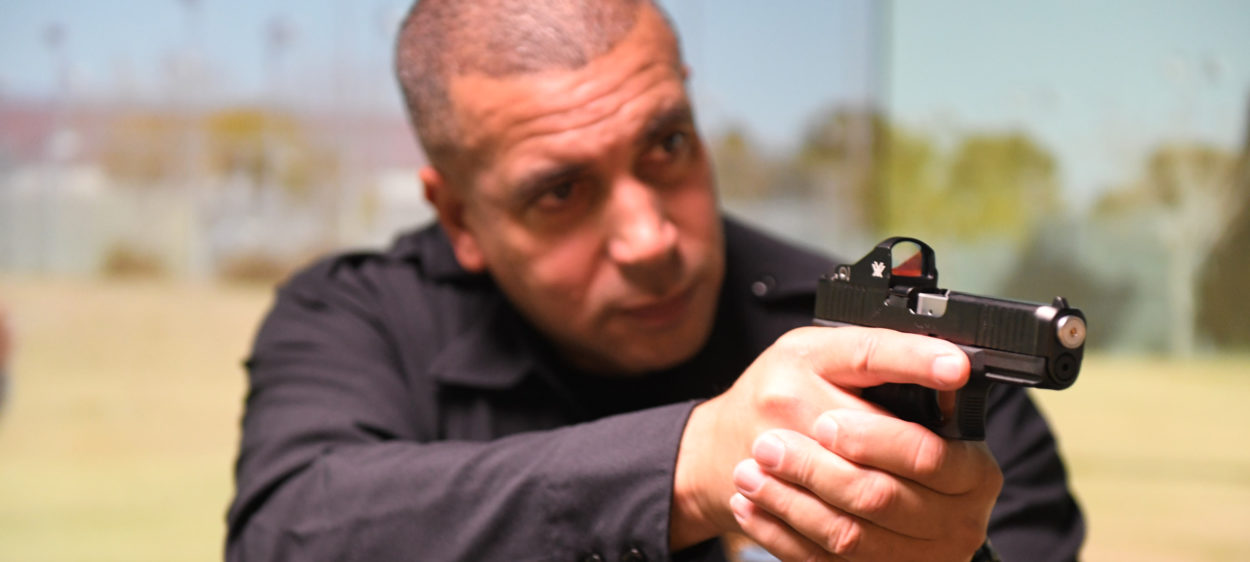
How do you debrief training performance? Are you the law enforcement training instructor that simply reviews a trainee’s performance? Or do you maximize your debriefing time by having trainee’s analyze their own mistakes and discussing corrective actions?
Debriefings are valuable for both instructors and trainees. This is a time dedicated to learning; where trainees learn from their errors while instructors learn about the trainees—their thought process, behaviors and potential training scars. As an instructor, it is difficult to change a student’s actions without understanding why they did what they did.
Begin the debrief by showing an effort to be open and honest so the trainees follow in this mindset. Make it clear this time is set for self-reflection and criticism. To prevent trainees from making excuses to save face, keep critiques centered around the learning and not the person. Be sure to monitor the officer’s physiological presence and physical reactions before, during and after training in the simulator and over time to help determine how training can be improved.
Streamline your debriefing by centering the discussion on these four questions:
What Did You Know Beforehand?
Start the discussion with this debriefing question. This provides a clear answer to how the student interpreted the information provided before the exercise. With larger classes, the answer may vary and there could be a correlation between each student’s interpretation of the information and their corresponding actions in the situation.
Analyzing their understanding also helps eliminate future miscommunication. For instance, a trainee might not have clearly understood a term or acronym before engaging in the situation. Or if the student failed to pay attention beforehand, it is clearly exposed.
Another benefit of this question is the ability to see how the stress of the situation affected them. Trainees who fully understand the objectives beforehand could have easily forgotten them the moment the weight of the situation hits.
What Did You See and Hear?
In high-stress, complicated scenarios, law enforcement officers may experience in-attentional blindness. Rather than focusing on every detail in a situation, people naturally concentrate on the elements they deem most important and ignore the rest. This is a natural human phenomenon that can turn deadly for officers, as these small and seemingly unimportant aspects of a situation can quickly turn into a threat.
The same thing occurs with selective hearing. Focused attention on a specific sound helps a person to zero in by ignoring irrelevant distractions. However, the consequence, like with in-attentional blindness, is missing the small details that could be an important signal.
Use this time to review or restart the situation with your trainees and point out small visual and auditory elements they missed that could have completely changed their decisions.
What Did You Do and Why?
Since the previous training debriefing questions caused students to better understand the situation, now is the time for self-reflection. Whether the trainees made correct or incorrect choices, this question helps recall their actions from a fresh perspective.
During training, instructors need to jump in immediately to correct mistakes. Training is focused on action and accomplishing objectives. But after, debriefing is spent reflecting and understanding why the corrections lead to a better outcome. When students understand the reasoning, they are more likely to rely on those corrections in the future.
What Would You Do Differently?
Ask this debriefing question last, as it builds upon the foundation created by the previous questions. If possible, change the debriefing style to a Socratic seminar. Self-discovery and analysis can be more effective as students discuss each other’s performance and reasoning.
The Socratic seminar method engages the class and pinpoints misunderstandings. Perhaps most importantly, this type of discussion helps trainees understand the concept at a deeper level while moving the information to their long-term memory.
Improve your department’s AAR’s and debriefs by balancing the time spent on learning and reflection. Debriefs are made easier through the use of VirTra simulators. With our TMAR picture-in-picture recording system equips the simulator with a camera and microphone to record the trainee. After, review this footage together while discussing their decisions. To learn how to maximize this reviewing function and equip your simulator with a TMAR device, please contact us.
Train hard, stay safe and keep it consistent.
Recently Published
Join Our Newsletter







